Cooperation partner
The Association NGO Support Center (OWOP) is located in the eastern part of Poland, in Białystok (Podlaskie Voivodeship). Our mission for over 20 years has been supporting social activity of citizens and their organizations. Our association gathers a group of people fascinated by social work and the development of local communities: animators, advisers, facilitators, evaluators, and trainers.
The main area of our activities is motivational and educational support: advisory and training for the NGO and local government sectors. In addition, our activities include:
- dissemination of mechanisms of cooperation between local government and NGOs
- supporting local leaders
- planning and implementing public policies with the participation of the social sector
- promotion of the values of the non-governmental sector
- development of social enterprises and social economy
- promotion and implementation of new forms of cooperation, e.g., through regranting - granting subsidies to organizations and informal groups.
Our activities mainly address local communities, NGOs, leaders, and informal groups, we also support local governments in participatory activities and local development.
The key to our approach is cross-sectoral collaboration, linking the public sector and NGOs and – increasingly – businesses, combining educational activities with individual in-depth advisory or mentoring support. We draw on national and European "good practices" through cooperation with partners from many European countries.
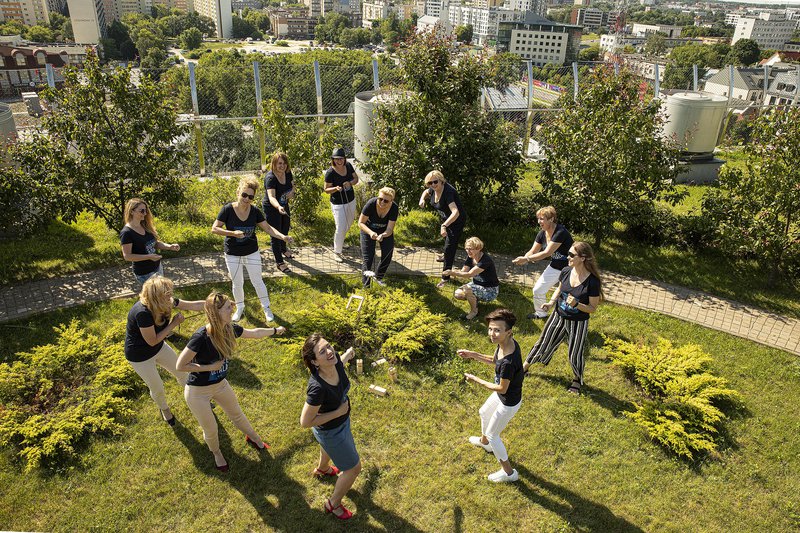
Photo by the Association NGO Support Centre (OWOP)
Specifics of the region
Podlaskie Voivodeship is located in north-eastern Poland. It is a largely agricultural area with low population density. A large part of the voivodeship consists of national parks and protected areas. A special feature is also the area's population of national minorities (Belarusians) and religious minorities (Orthodox Christians, Muslims). Therefore, apart from natural values, multiculturalism is also a feature of the area. The Podlaskie NGO sector consists mainly of small organizations, most of which have no employees and little financial capital.
The Podlaskie NGO sector constitutes only about 4% (3400) of the Polish NGO sector. The largest number of organizations operates in the Białystok sub-region (1709) and the smallest in the Suwałki sub-region (818) ("Needs and opportunities of non-governmental organizations in Podlaskie voivodeship, Research report 2016"). According to the data, small organizations operating locally with low numbers of staff and financial potential dominate. As many as 38% of organizations do not exceed revenues above PLN 10,000 (€ 2,500) per year. Lack of income stability is a serious problem for organizations, which significantly limits their activities. Public sources have the biggest share in the budgets of NGOs in Podlasie - about 74% (in Poland - 54%).
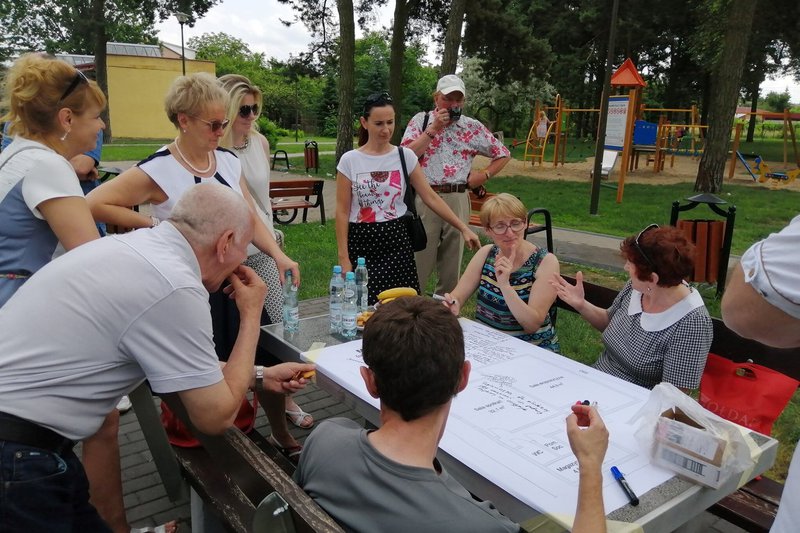
Photo by the Association NGO Support Centre (OWOP)
Some of the communes in the voivodeship are "blank spots'' – places where there are no non-governmental organizations or organizations with very low potential. Civic Europe calls them "civic deserts." In Podlaskie Voivodeship there are also such places with low social potential. Every fourth NGO in Poland operates in the countryside. At the same time rural organizations have much lower financial and personnel potential.
The main challenges in the development of the non-governmental sector include:
- strengthening the potential (organizational, financial and human resources) of local organizations and informal groups carrying out social activities so that they can become important and significant partners in building local communities
- building cooperation networks between organizations
- creating an atmosphere of good partnership between organizations, inhabitants and local authorities
Operating non-governmental organizations and informal groups cooperating with OWOP report a number of needs concerning their activity and their potential. These needs result mainly from the lack of continuity in financing activities and projects (organizations operate from grant to grant), lack of plans from a wider perspective, lack of skills to build the organization's program path. The needs of the organizations mainly involve:
- Increased ability to analyze local needs and plan effective activities responding to the needs of the local community
- Increased knowledge and skills to evaluate and reflect on activities carried out so far in order to avoid repetition of mistakes.
- Many organizations carry out necessary and effective activities in their environment, but they are not able to communicate it, they do not run effective information and promotion campaigns, and local communities do not notice their efforts. Insufficient knowledge and skills in PR and promotion is another weakness of local organizations.
In implementing the Civic Europe program in the Podlaskie Voivodeship, we try to respond to the needs of organizations by conducting a series of educational and individual support from mentors focused on analyzing the potential of the organization, self-evaluation tools in such areas of activity as team management, strategic and operational planning, financial management of the organization, strategic planning, and planning activities in the field of image and public relations.
One important element of the program is learning by doing – organizations and informal groups implement their own initiatives and projects.
The learning circle
The Capacity Building program in Poland consists of 5 learning events for NGOs and informal groups and regular internal supervision trainings for mentors in the respective local language and provides grants for funding of 6 locally rooted initiatives. The learning events are held partly in person and partly as online or hybrid events.
The learning events focus on the following topics:
- Integration of participants and methods of diagnosing needs in communities
- Planning activities in communities
- PR and promotion of the organization and its activities, partnership building
- Organizational self-assessment tool
- Evaluation, reflection, how to stay connected
The participants:
Participants are selected based on OWOP’s respective criteria (e.g., motivation, min. 1 year of activity for the benefit of the local community and strengthening its potential). Currently 20 participants from 5 local NGOs and one informal group are taking part in the learning events.
Profile of participants
Forest Intervention Patrol (PPI), informal group
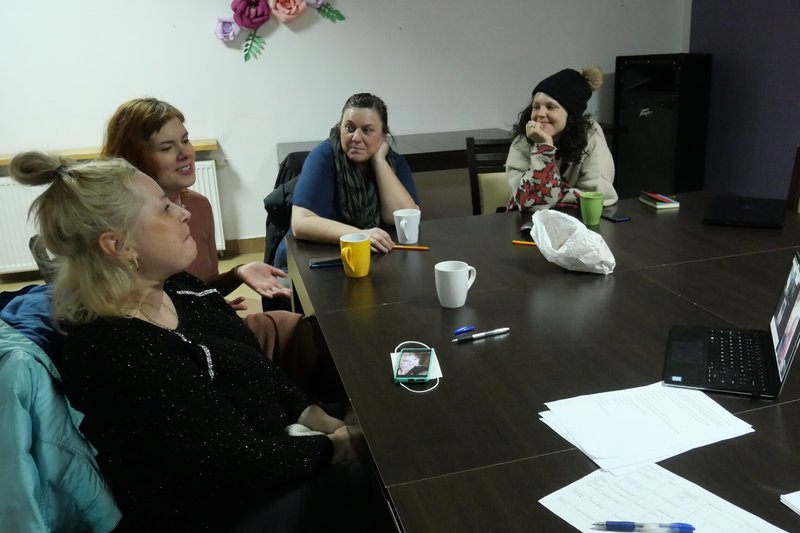
Teremiski, Poland
We are a group of sensitive, empathetic women who share a love for animals, a willingness to act in public for the homelessness of animals. We have different experiences, resources, we live in different places around the Białowieża Forest, but we are united by a deep need for change, a will to act, and to fight for the fate of animals. It often affects our well-being, a kind of burnout that accompanies us during our interventions, which are extremely emotionally burdensome. But we try to help and support each other. Until now, we have operated in a less structured way, sometimes alone and sometimes working together at different levels, but we feel the need to join forces and create a kind of effective support network.
International Institute of Children's Development, NGO
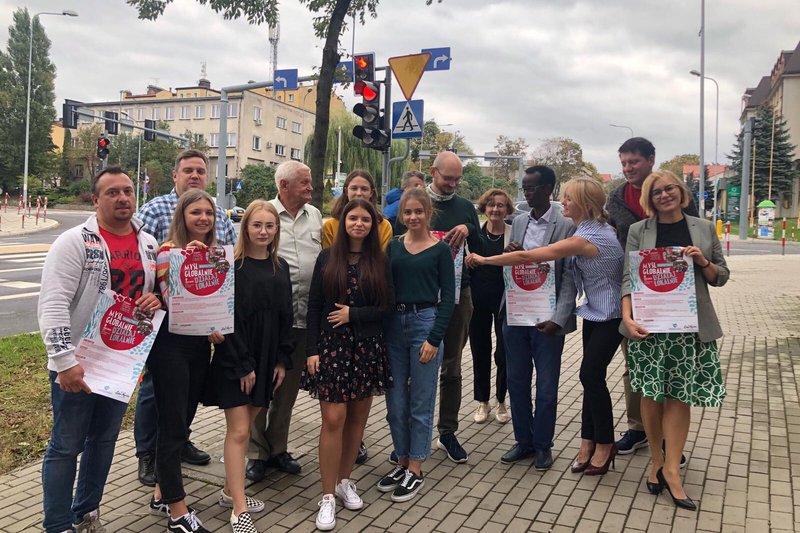
Stare Kupiski, Poland
We want to support children from the poorest regions because none of us has any influence on where we are born and what start our family can guarantee us. With our actions, we want to support and stimulate education all over the world, nurture creativity and curiosity about the world as well as critical thinking among children. We also want to support children from developed regions who theoretically have everything they need to live a happy life, but statistics show a growing percentage of people suffering from depression. As a foundation, we want to give children an alternative to the consumerism that surrounds us and shape the values of cooperation and development among the youngest ones that take into account all aspects of humanity - also emotional and spiritual aspects. We want to pay special attention to children and adolescents from orphanages.
The Biebrza Society, NGO

Ossowiec, Poland
The Biebrza Society was established in 1988 and was one of the initiators of the creation of Biebrza National Park. The main areas of our activity are the promotion of nature-friendly practices and the preservation of the cultural heritage of the Biebrza River Valley region. Among the members of the society are Biebrza’s nature enthusiasts, park guides, and nature photographers well-known in Poland. Although our activity has weakened in recent years, we have returned to the game with redoubled strength; full of ideas, we are planning various local initiatives. We want to support the activities of the park and strengthen the ties of the local community to the unique nature of the Biebrza marshes.
9dwunastych Association, NGO

Białystok, Poland
9dwunastych was established in Białystok in 2009. We are building a civil society based on respect for human rights and human equality, aware of how democracy works and using its tools, participating in and co-creating culture, actively working to stop the climate disaster, creating independent communities based on mutual acceptance and support. The main area of our activities is the Podlaskie Voivodeship; we have been cooperating with Wrocław organizations for 3 years.
FUTURUM Foundation, NGO
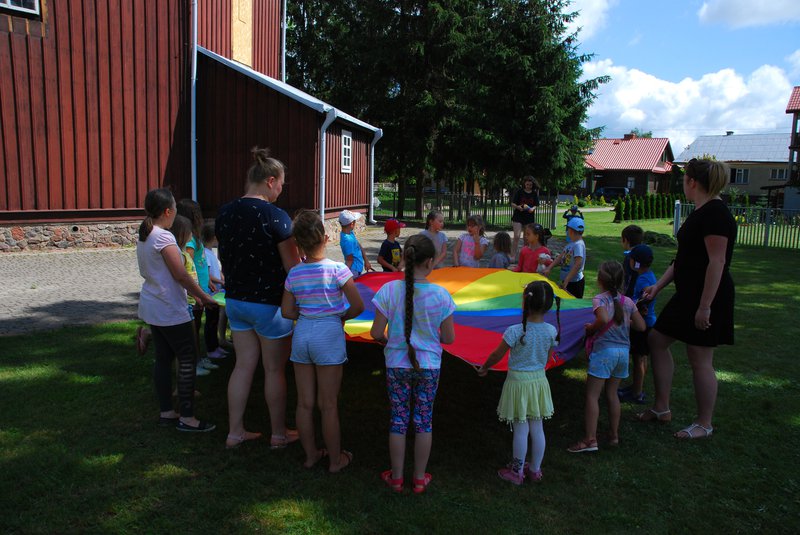
Orla, Poland
The Foundation for Equalizing Children's Educational Opportunities and Social Integration (FUTURUM) was established in response to the reflections of parents and guardians of children and young people living in the Orla community about the insufficient access of rural residents to attractive educational and cultural offerings. We are a group of parents, teachers, and students who are committed to working for our local multigenerational and multicultural community. We have already initiated many interesting activities aimed at children, adolescents, and adults of all ages and devoted to the culture and art of ethnic minorities, modern education of children and youth, creative ways of spending free time, as well as preventive programs. Over the 4 years of our activity, we have completed over 20 projects thanks to cooperation with the local community, local government, and other non-governmental organizations and institutions such as: Orla Commune Office, Orla Community, Primary School in Orla, Municipal Cultural Center, EDM Foundation, Agricultural Circle in Orla. We hope that together we will change the educational and development opportunities of the rural communities of Podlasie.
POLZA Foundation, NGO
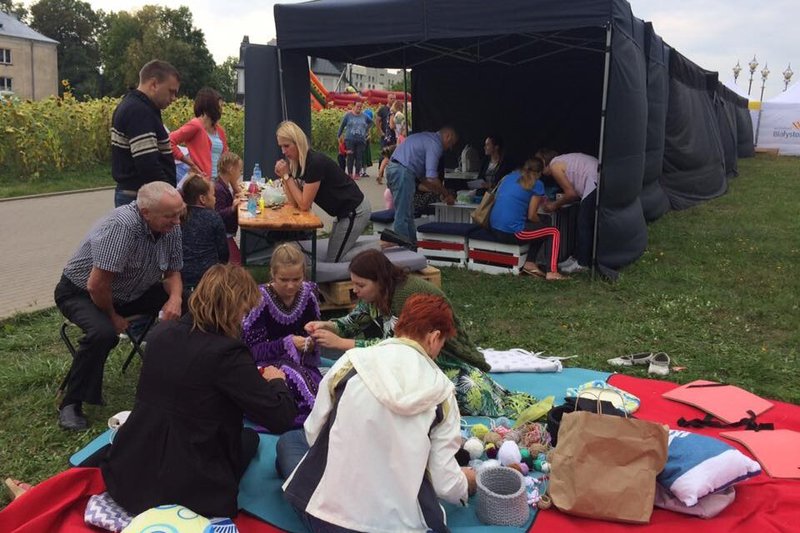
Białystok, Poland
The Foundation was established by migrant women from Belarus and Ukraine. We offer assistance in the integration and adaptation of migrants, in particular people from the neighboring countries Belarus, Ukraine and Russia. We have the greatest achievements in the integration and development of the local community. Our activities are directed at both migrants and Polish citizens, at children, adolescents, and adults. The scope of the Foundation's activity is Białystok. We are also opening our branch in Krakow (it will be run by migrants from Ukraine). We operate regardless of projects and funding. Before the pandemic, we ran a Migrant Club where we created a community of migrants, we conducted integration meetings, trips, and workshops.
Participant initiatives
Wilderness Intervention Patrol in action
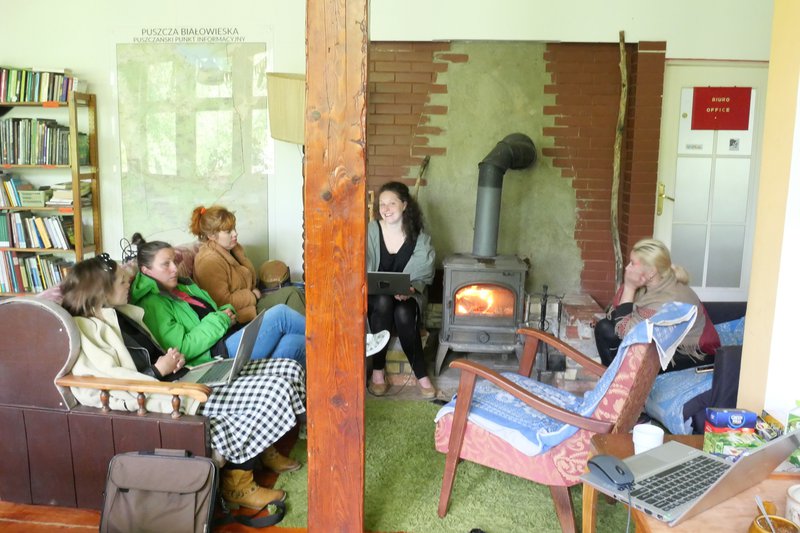
By Forest Intervention Patrol (PPI), informal group
As part of the initiative, we carried out activities to raise awareness in the local community about animal rights and their observance. For this, we organized meetings with residents and local leaders and developed legal recommendations for animal care programs in the municipalities. Our initiative also included activities to educate group members about preventing burnout.
It’s also interesting near me
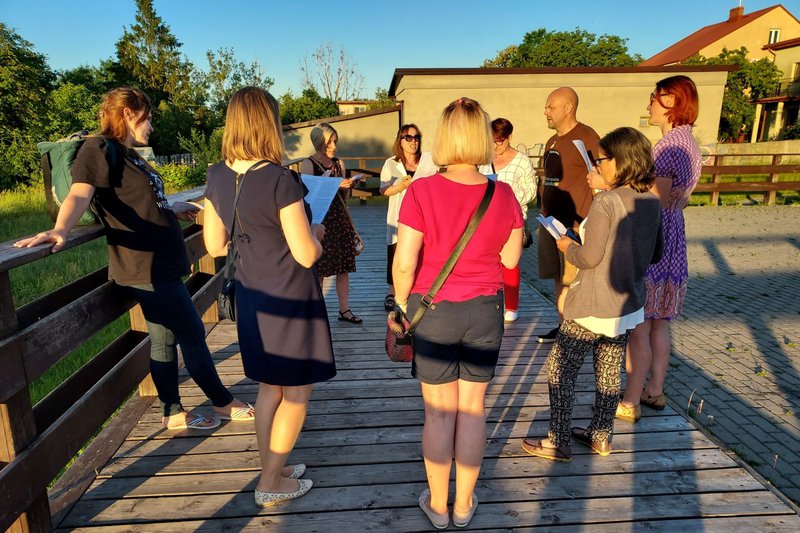
by The Biebrza Society, NGO
The aim of our initiative was the ecological education of the local community to integrate various groups (children, youth, adults) in the work protecting Biebrza National Park’s natural heritage. Our initiative included a series of educational, environmental, and cultural events promoting the local culture and environment. A series of nature excursions aimed at presenting the natural wealth of Biebrza illustrated by traditional singing workshops and a photography exhibition in the local fire station. Several dozens of inhabitants of the Biebrza area took part in our learning events.
We grow. Flowerbeds, relationships, holidays

By 9dwunastych Association, NGO
As part of our initiative, we created a community garden in the urban space of Bialystok University. We organized a series of workshop meetings on the basics of gardening, shaking off difficult experiences of remote online life, interpersonal relationships, and communication including non-violent communication. Eight young people aged 16-24 took part in the initiative.
Together we act and care for the common good

by FUTURUM Foundation, NGO
Our initiative conducted integration activities addressing the community of the Orla commune. They aimed at counteracting the effects of the pandemic, including isolation of the elderly and children. Educational, handicraft, and animation workshops were held for children, youth, and adults living in Orla and surrounding areas, including a half-school for children. We developed a prevention brochure on the use of the internet and new technologies as well as the dangers resulting from the abuse of digital media. As a result of our activities, we increased the integration of community residents.
LibrAfrica in Lomza and surroundings
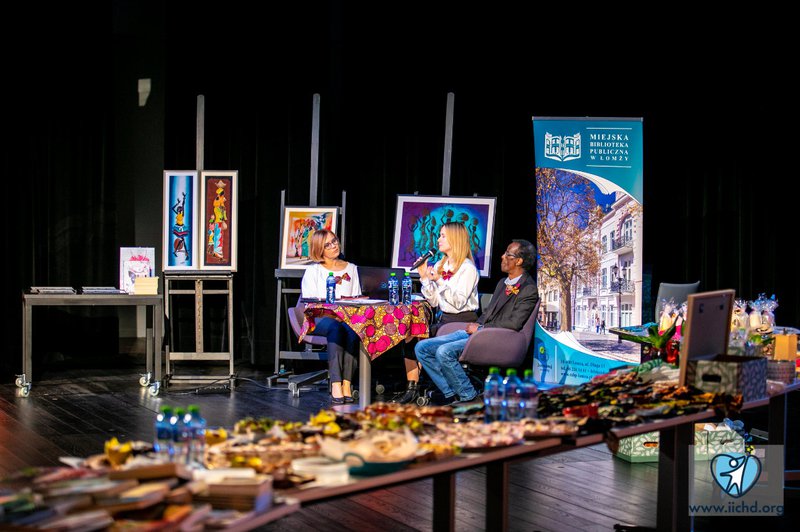
by International Institute of Children's Development, NGO
The aim of our initiative was to popularize reading and the use of libraries among the local community, to show how libraries operate in various places around the world, particularly in Africa, and to show what a benefit it is to have access to libraries and books and a broad understanding of education in European countries. Our initiative was attended by pupils from 5 schools in Łomza and the surrounding area, including children with disabilities from the Special School Complex in Konarzyce. During the workshops, the participants learned about the everyday life of their peers on the African continent with the help of educational films. The films were produced during a recent trip by members of the foundation to Tanzania, in the region of Ushirombo, Geita, and Sukuma. At the end of the workshop, the pupils made their own booklets, which were sent to Tanzania as a contribution to the start of a library in this small Tanzanian village.
Our initiative increased the pupils' knowledge about the reality of children's lives in Africa, opened them to tolerant attitudes, and promoted reading.
Multiculturality of Podlasie
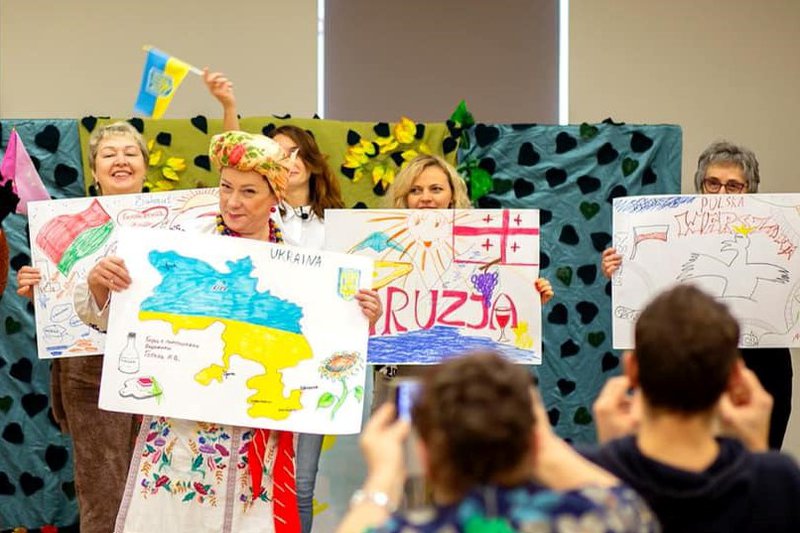
by POLZA Foundation, NGO
Our initiative was about getting to know the diversity of Podlasie by showing the richness of the culture, customs. and traditions of Podlasie and its neighboring countries, especially Russia, Belarus, and Ukraine. Our initiative included a half-day integration workshop for children from Belarus, Ukraine, and Poland and 9 integration and cultural events for adults and whole families. The project addressed migrants from the East and Polish people for better integration, adaptation, and familiarization with the traditions and culture of neighboring countries. As a result of our initiative, we increased tolerance and helped the integration of migrants in Podlasie.